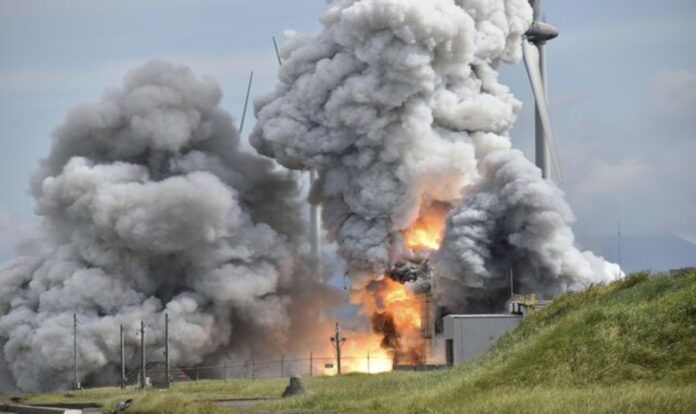In a recent development, Japan’s space agency, the Japan Aerospace Exploration Agency (JAXA), faced another setback as its Epsilon-6 rocket failed to deliver eight satellites into orbit, leading to a self-destruct order. The rocket, carrying a mix of satellites developed by private and public entities, including universities, experienced a deviation from its intended trajectory, prompting the decision to abort the mission. The self-destruct command was executed as the rocket could not fulfill its primary objective of placing the satellites into orbit. Following this failed launch, JAXA has been forced to postpone the scheduled launch of the Epsilon S rocket from fiscal year 2023 to fiscal year 2024.
This delay stems from the fact that the Epsilon S and Epsilon-6 rockets share the same fuel tank, requiring further investigation and modifications to ensure a successful launch in the future. Notably, the Epsilon series rockets utilize solid fuel, which streamlines the launch preparations when compared to rockets that rely on liquid propellants. This incident comes on the heels of another setback for JAXA earlier this year. In March, the agency’s new flagship H3 rocket was also ordered to self-destruct after its second-stage engine failed to ignite during a ground test.
Fortunately, no injuries were reported in the subsequent explosion, which occurred one minute into the engine test. The Noshiro Testing Center in Akita Prefecture, responsible for the development of the Epsilon S rocket, aims to bolster Japan’s competitiveness in the ever-growing satellite launch market. The Epsilon series, initiated in 2013, has seen five successful launches prior to the unfortunate self-destruction of the Epsilon-6 in 2022 due to trajectory deviation.
The recent self-destruct order was issued at 9:57 am after the Epsilon-6 rocket’s liftoff from the Uchinoura Space Center located near the southern tip of Kyushu, Japan’s southwestern main island. Despite the setback, JAXA remains committed to pushing the boundaries of space exploration and satellite launches. While these recent incidents pose challenges for JAXA, they also highlight the inherent risks and complexities involved in space missions. The agency will undoubtedly learn from these experiences, implement necessary improvements, and strive towards achieving successful launches in the future.


